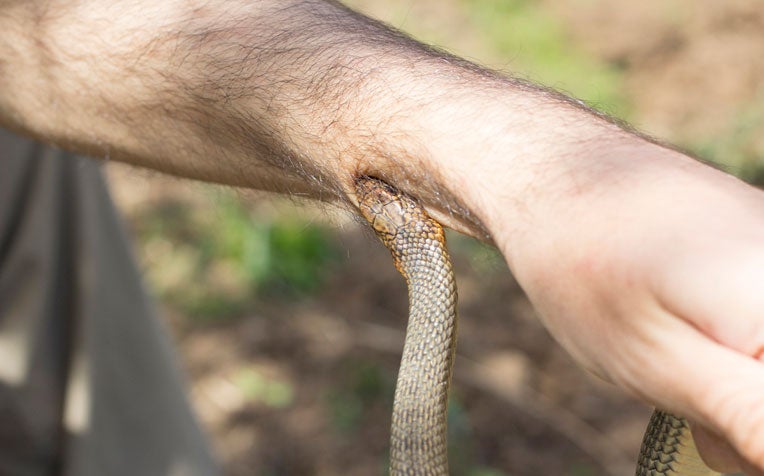HealthXchange will NEVER ask you to transfer money over a call. If in doubt, call the 24/7 ScamShield helpline at 1799, or visit the ScamShield website at www.scamshield.gov.sg.
Snake Bites: Symptoms and Treatments

Snake bites are preventable.
Signs of venomous snake bites
Some possible signs of venomous snake bites may include any of the following:
- Swelling
- Skin discolouration
- Rapid heartbeat, breathing difficulty
- Vomiting
- Sweating
- Shivering
- Intense pain
However, it is important that you do not wait for these signs to appear before seeking treatment.
Treatment of snake bites
Snake bites with significant envenomation (injection of venom) are treated with an anti-venom, usually made from equine antibodies (i.e. from horses). The doctor will first do a skin test before administering the anti-venom to make sure the patient is not allergic to it.
Even if an anti-venom is not indicated, the doctor needs to assess the patient for complications such as retained snake tooth fragments in the wound. The doctor will also suture lacerations as needed and make sure that any required tetanus booster is given.
Prevention is the best cure for snake bites
Make sure you wear covered shoes when outdoors. When walking in forested areas avoid going off the beaten track and areas with dense undergrowth.
Snakes love to hide in dark, damp places so dispose of any big piles of rubbish around your home.
The final word of advice: If confronted with a snake, stay very calm and do not move. Let the snake slither away. Do not attempt to handle a snake even if it appears dead as it can reflexly bite up to several hours after death.
Ref: S13
Contributed by
Related Articles
Conditions & Treatments
Public Events
Get the Health Buddy App
© 2025 SingHealth Group. All Rights Reserved.
















 Get it on Google Play
Get it on Google Play